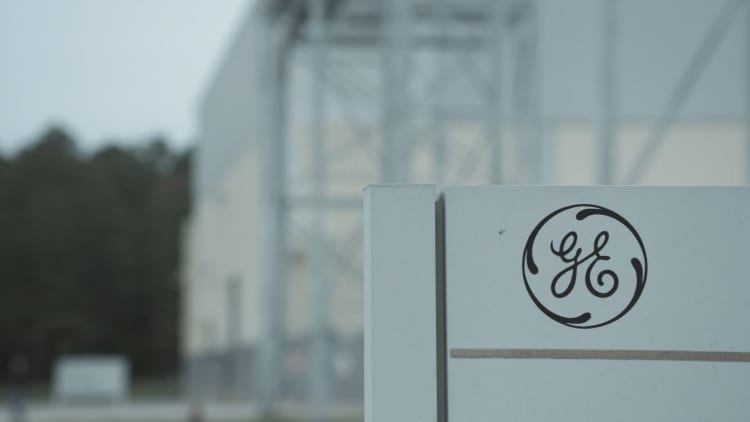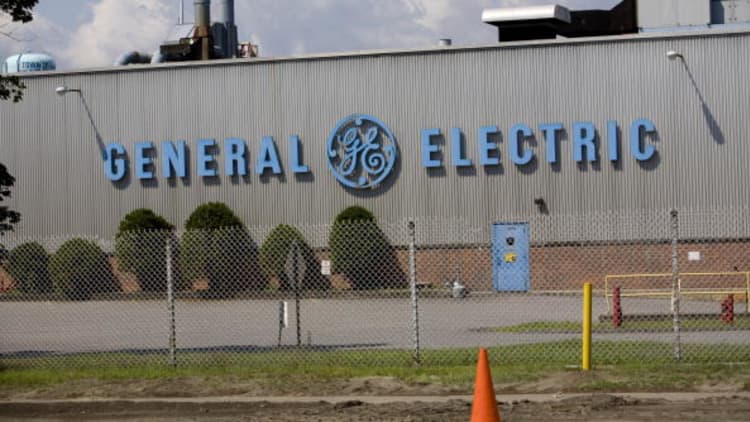
General Electric shares fell to a new 9-year low on Monday, dropping to levels not seen since July 13, 2009, as concern about a recent gas turbine failure in Texas hang over the embattled industrial conglomerate.
Shares of GE fell as far as $11.60 a share in trading, breaking past its previous low this year of $11.94 a share.
The stock closed at $11.46 a share on July 22, 2009 – a few months after it hits its lowest point during the financial crisis, when it closed $6.66 a share on March 5, 2009.
GE's stock has fallen steadily this year, down 32 percent. The conglomerate's stock has set new lows as investors remain unconvinced by CEO John Flannery's turnaround plan and its stagnant power business has hit new roadblocks, such as the Texas turbine failure and no short-term turnaround in sight.
Several Wall Street analysts slashed GE price targets this month due to the struggling power business. UBS cut its price target to $13 from $16 for GE shares, saying the business will likely "require even more aggressive cost reductions, force GE into a vicious cycle." J.P. Morgan brought its price target all the way down to $10 a share, saying the firm now assumes "weaker results at power and some franchise value impact" for GE.
Flannery said during GE's second-quarter earnings in June that he had "essentially" completed the "target of $20 billion of dispositions" he promised.

GE was worth nearly $600 billion in August 2000 — a time when it was one of the most valuable companies in history. Its valuation slipped over the first decade of Jeff Immelt's tenure as CEO before taking a sharp hit during the 2009 financial crisis. But GE's value recovered to pre-crisis levels nearly as quickly, reaching as much as $300 billion by December 2015. Yet shareholder confidence began eroding sharply in January 2017, at about $31 per share.
Immelt's time leading the company was defined by an unwillingness to hear bad news, over a dozen insiders revealed to The Wall Street Journal earlier this year. The overly optimistic CEO's behavior led to a number of consequences: Unrealistic financial goals, poorly timed acquisitions and even mismanagement of the company's cash. Since January 2017, shares have fallen nearly 60 percent as investors discovered a company pulled in multiple directions by its many businesses, under investigation by both the Department of Justice and the Securities and Exchange Commission and weighed down by a finance arm with about "zero equity value."


